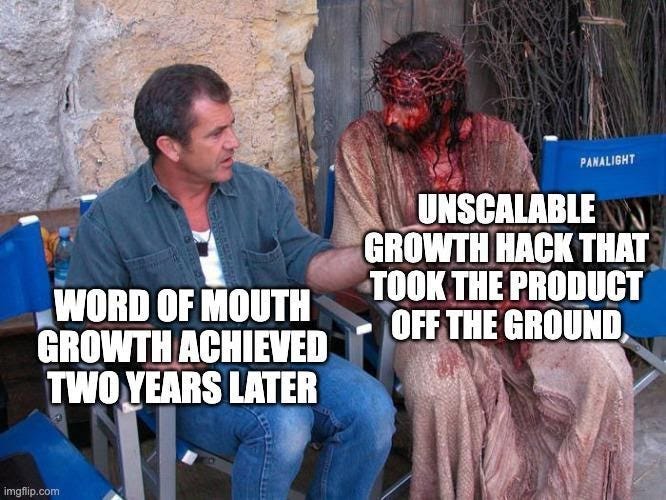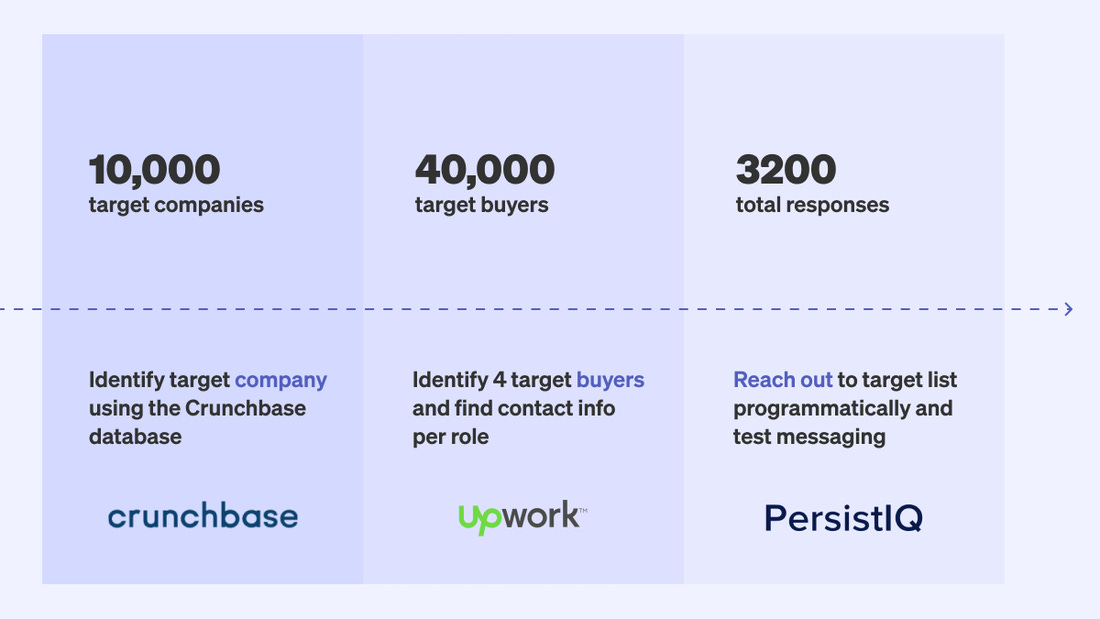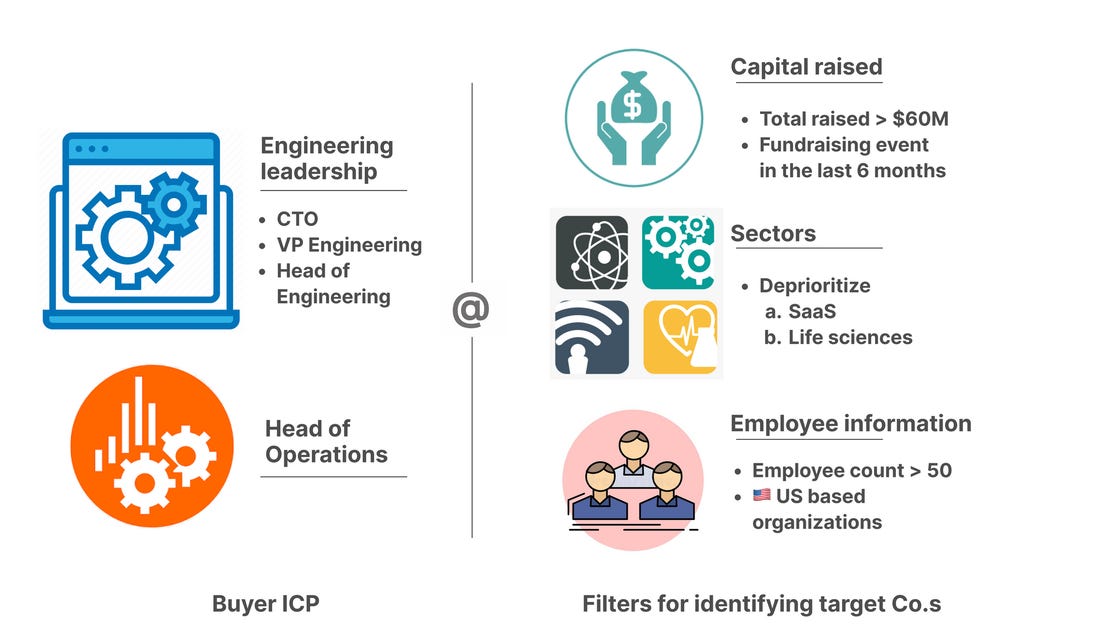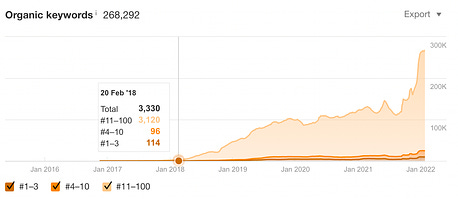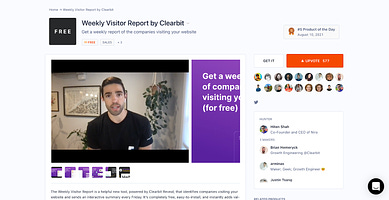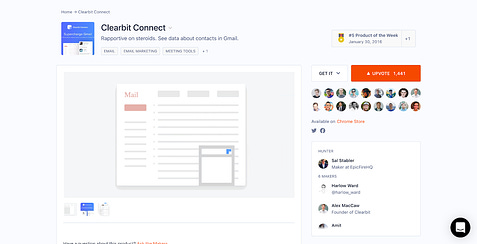Brute Forcing Your Way to “Default Alive”
If this was forwarded your way and you wish to sign up to First 1000, you can do so here :) Hello Frens 👋, By: Ruchin Kulkarni One of the most unforgiving places on the planet is the lowest of the five layers of the Amazon rainforest: the forest floor. Starved of sunlight and crawling with predators, if you're a sapling here, chances are you're not going to make it. Every inch is prime real estate, and the competition to catch a ray of sunlight here is devoid of pity. By measure of competition alone, survival in the Amazon rainforest ranks right up there at the top as one of the most merciless endeavors one can undertake. Starting up a venture in 2022 feels like a close second. The rainforest is one of the richest ecosystems in the world, but the battle for survival on the forest floor is a street fight. Some determined plants climb the trees and sprout leaves high in the canopy. Some live off the air and water, high on the branches. Only the fiercest strains emerge into the sunlight, wrestling the others out of the way to get there. In 2021, venture capitalists invested more than $675 billion in startups worldwide, doubling the all-time high set in 2020. There were far more decacorns, i.e., startups valued at $10B or more, created in 2021 than in any prior year (30, as of November, according to Crunchbase)—more than double the count in 2020. The rainforest canopy is no doubt getting thicker. There are more startups in the world today than ever before. Competition is fiercer than ever, and only the most tenacious and the most creative survive the scrap to emerge into the sun. The early days of the tallest redwoods of the tech world were no different: they cleared the ground with sheer brute force and an iron will. Retool and the Art of Brute Forcing SalesToday, Retool helps companies like Mercedes-Benz, DoorDash, AB InBev, Fox, NBC, and many others build internal tools—fast. They raised their Series C funding in December, bringing their valuation to $1.85B. Retool is growing, and growing rapidly. Retool's early days are testament to how brute force outbound reach combined with a great product can soon hit escape velocity and take a company into orbit. “The only way that you could learn about Retool [in the early days] was for me to email you and tell you about it.” – David Hsu, CEO & founder For the first year and a half, Retool's growth was founder-led. Here's how they raced to over a million dollars in revenue in one year: Step 1 The team scoured Crunchbase Pro to identify 10,000 targets that fit the description of the companies they wanted to introduce Retool to early on. “Typically, if a company has raised money in the past six months, it means that they are looking to expand, grow, and operationalize what's already been working.” – David Hsu, CEO & founder Step 2 The founding team used Upwork to convert the 10,000 targets into individuals at these companies, zeroing in on specific roles:
The spreadsheet now comprised 40,000 names for Retool's ideal customer profile (ICP). Over the coming weeks, all of them were about to hear about Retool for the first time. Outbound targeting during the early days of Retool Step 3 David turned to sales automation tool PersistIQ to reach out to the 40,000 individuals. After A/B testing a variety of approaches, the team finally found the subject line and messaging that worked and hit their inboxes. At a conversion rate of 8%, they turned many of these responses into early adopters and even signed an enterprise customer pilot worth $1.5M! They hadn't made a single hire outside the founding team yet 🤯 Twilio: Ditch the Slides, Just Show the World Some Tech"We just started by treating developers like customers. It sounds really simple, but there's a lot to it. Most companies who claim to serve developers actually don't see developers as customers. They see them as a strategy. Developers aren't customers for them. They're like an audience that you try to win over in order to actually add more value to the company. And if it works, great. If it doesn't, then you change strategies." – Jeff Lawson, Founder & CEO, Twilio Demo of Twilio at the New York Tech Meetup (YouTube video) Today, Twilio dominates the "Communications Platform as a Service" space. That SMS from Airbnb confirming your booking, the ETA alert informing you of your Uber driver's imminent arrival, and that Netflix invoice at the end of the month were likely all triggered by Twilio. At a popular networking mixer SF New Tech Meetup in 2010, rather than ramble on about a complicated communications infrastructure in a PowerPoint presentation, Jeff Lawson let the Twilio product speak for itself. In front of a crowd of thousands, Jeff told the story of Twilio and its product while simultaneously coding up an application on a projected screen—a simple conference line. In a matter of seconds, he opened an account, got a phone number, had a conference lined up and running, and asked everyone to phone in. And, just like that, a throng of developers joined a giant conference call! Lawson then added a few more lines of simple code and retrofitted his app to call all participants back and thank them for participating in the demo. As phones throughout the room began buzzing simultaneously, the crowd went wild with enthusiasm! 🎉 Recognizing the power of a live demo, Twilio rolled out this playbook across hundreds of developer conferences across the United States, brute forcing its way to word-of-mouth recommendations. Atlassian: Can't Afford Conference Passes? Get Your Customers Drunk Instead! 🍺Atlassian recognized that a large chunk of potential customers aggregated at tech conferences—like the JavaOne conference in San Francisco. However, booths cost anywhere between $20K–50K, which Atlassian couldn't afford. Being the hacky 22-year-olds they were, Atlassian employed some guerilla tactics ahead of a popular session called "Java Posse." Prior to the event, Scott and Mike trucked in about 15 to 20 cases of beer for attendees and slapped Atlassian labels on them. The free drinks were such a success that the speakers at the event gave Atlassian a great shout-out, the team got mentioned in a popular podcast, and for about $3,000 (the cost of the beer), Atlassian scored booth space worth several tens of thousands of dollars! Atlassian's conference beer parties! Tinder: Throw Parties! Again, and Again, and Again…Network effects look magical from the outside. Almost like they always existed and always will. But most networks are “engineered.” They were crafted from a network of one to two to four… to a million nodes. And Tinder is a classic example of “engineered” network effects. It all started when one of the founder's (Justin) younger brother was throwing a birthday party for his best friend at USC. He had a bus going back and forth from USC to his parents' home to transport a total of about 500 students. This is when the Tinder team had an idea: "Let's pay for the bus and call this a Tinder party." They called the birthday girl and asked, "Can we make this a Tinder party? We'll spend money and make it bigger and better," and she was really excited about the idea. So, Tinder paid for the bus and put a bouncer at the door and told every student that they couldn't walk in unless they downloaded Tinder. You'd literally have to show Tinder on your phone. So about 400 people downloaded Tinder at USC, none knowing what they'd really downloaded. The party was an amazing success, and the next day, everyone at the party woke up and remembered they had a new app on their phone. There were attractive people they hadn't gotten to talk to, and this was their second chance. The college party launch tactic worked. This one party created the highest ever one-day spike of downloads. Now, 400 might seem modest, but these were 400 of the most social, hyperconnected people on campus. Overnight, Tinder started to work at USC. Next up, all the other universities in LA, the East Coast, Europe, and eventually even Southeast Asia and India! Tinder growth-hacked their way to network effects, one party at a time! ClickUp: A Blog Post Each Day and a Feature Each WeekHaving decided not to raise funding in the early days, ClickUp's growth from $0 to $20M annual recurring revenue is testament to their strong, product-led growth flywheel. With $0 spent on marketing and sales, ClickUp relied entirely on content to attract their early users and generate growth. Zeb Evans and his team diligently pushed one post a day on the ClickUp blog, positioning ClickUp as an alternative to the status quo in the crowded productivity space. Their content proudly aimed to educate their users by walking them through the platform and included a new feature every week. Content was the fuel in the tank of ClickUp's organic growth engine driven by word-of-mouth, referral, and organic traffic. Their SEO strategy cast a wide net, targeting high-intent short- and long-tail keywords from users in many different verticals that ClickUp had brought together under one roof. Today, ClickUp is a media agency masquerading as a productivity tool. Still with a blog post every day, and a presence across various social media platforms, ClickUp is one of the loudest B2B companies you are ever likely to find. From ongoing testimonials from power users ("ListenUp") to an Instagram series called "#ReturningToWork," a TikTok channel, and long-form content pieces on productivity and remote working, the ClickUp media arm constantly runs at full speed, bringing in organic leads whose search intent is tied back to the product through content. "Work schooling," a video released as part of the "#ReturningToWork" series has over 2.3M views on YouTube. The results speak for themselves: "We first started creating value content over two years ago. Today, that free content nets ClickUp $12M in free clicks every month." – Zeb Evans, CEO Algolia: Pretending to be San FranciscanWorking out of their headquarters (HQ) in Paris, Algolia wanted to go after the big logos, and none were more valuable (and visible) than U.S. logos. With the confidence that their U.S. clients didn't really care where they were based if they were available when needed, Gaëtan Gachet (Employee #4 and then VP of Business Development) and team set out to conquer the U.S. marketplace. Algolia went the extra mile to bridge the perceived distance between San Francisco and the United States. If you were a customer trying to reach someone in Algolia, you could do so at any point during your workday by calling their 415 (San Francisco area code) number. What you wouldn't have known was that you were reaching someone in Paris working PST time zone hours on a San Francisco number that had been set up on Aircall. Algolia went the extra mile to bring San Francisco to Paris. They flew in representatives from Atlanta to the Paris offices to add “some American blood” to the culture and banned French in open spaces. Every international hire was given a soundbox and the license to turn up the volume any time they heard someone speak French in the open. Algolia later moved to San Francisco officially, but in the early days, not many knew about their French roots and their Paris HQ. Stripe: Collison InstallationsThe way you might have discovered a product back in 2010 was likely through an offer to try a beta, or a programmed sequence as part of an email campaign, a hacker news launch, or something similar—unless this product was called Stripe. In the early days, you might have discovered Stripe through either Patrick Collison or his brother John asking if they could set up Stripe for you on your laptop. The Collison brothers pioneered this unscalable and highly unusual, but effective, technique for early user acquisition. They got to the point. Y Combinator (YC) startup school and tools for new startups have the benefit of a large pool of other YC-funded companies as potential customers. As a YC company themselves, Stripe took full advantage. The Collison brothers collided head-on with their high customer lifetime value customers. This took the Stripe rocket ship off the ground, coining the phrase “Collison installations,” and it gave Stripe a reputation for aggressive early user acquisition they still hold today. Hang the mmhmm Demo Video in the LouvreMost tools we use to communicate today lack the expansiveness for people to express themselves fully, the way they might do in person. A tool that attempts to solve this by adding another dimension to video calls is mmhmm. The software provides "communication superpowers." You can add a second screen to your video, move your image across the screen, zoom in and out, and deploy a whole gamut of other cool features on your video calls. Tasked with showcasing mmhmm's arsenal of features while communicating the broader need for such an application and the larger mission, co-founder Phil Libin released a demo video. One thing was clear: he had understood the assignment. In the demo, Phil starts by describing the problem: “I'm really tired of living all day on video. It's so easy to feel like an anonymous head in the box.” Then, he pitches the product and takes you through a showreel of mmhmm's features. The demo struck a chord with a world that was still adjusting to the realities of remote work and video calls. Here's one of the best product demos ever created: Released back when they were in early invite-only beta, the video has amassed 1.4 million views on YouTube, creating a waitlist 100K+ long. Clearbit: Keep Launching on ProductHunt 🔁Clearbit released and promoted multiple free tools and browser extensions that provided standalone value. These tools doubled as gateways to Clearbit, provided instant gratification, and by solving use cases, they were perfect destinations for paid marketing traffic. Some of Clearbit's launches on ProductHunt include:
ProductHunt's Weekly Visitor Report announcement on Twitter Young, Wild, and FreeOne of the most common pieces of advice that Paul Graham gives at YC is this: do things that don't scale. “A good metaphor would be the cranks that car engines had before they got electric starters. Once the engine was going, it would keep going, but there was a separate and laborious process to get it going.” – Paul Graham, Y Combinator For startups, there are unique advantages to being young, wild, and free. They can grow and delight early customers in ways bigger companies cannot. And while that may not amount to much in the short term, small wins begin to snowball and compound over time. The concept of compounding growth doesn't always register at the level of intuition, but tracking metrics such as "weekly growth rate" can serve as good reminders of why seemingly small and hard-fought wins can sometimes be highly valuable: another piece of advice founders often get at YC. David Hsu and Retool will never have to do cold outbound marketing again. You won't find Atlassian smuggling beer into conferences these days. It doesn't matter who you are today, it's unlikely the Collison brothers will set up Stripe on your laptop. But back in their early days, as far as the Stripes, the Retools, and the Atlassians of the world were concerned, the only objective was to clear the forest floor, rise above the shrubbery, and grow shoots towards the sun.
— I am testing out a new referral program for the newsletter, still in beta but you can check it out here. |
Older messages
🚵♀️ Strava
Tuesday, February 1, 2022
& the Inch Wide Mile Deep go to market
GTM Canon
Tuesday, January 18, 2022
The best GTM content from around the internet
🤷♀️The Trust Paradox
Tuesday, January 11, 2022
How did startups with businesses anchored on overcoming a large threshold of trust acquire early customers when they have no track record to fall back on?
✨Notion
Tuesday, December 14, 2021
+ launching a product in a crowded space, growing through Word of Mouth and positioning a product that is hard to explain!
Navigating First 1000
Tuesday, December 7, 2021
Making the best out of all previous First 1000 issues.
You Might Also Like
🚀 Ready to scale? Apply now for the TinySeed SaaS Accelerator
Friday, February 14, 2025
What could $120K+ in funding do for your business?
📂 How to find a technical cofounder
Friday, February 14, 2025
If you're a marketer looking to become a founder, this newsletter is for you. Starting a startup alone is hard. Very hard. Even as someone who learned to code, I still believe that the
AI Impact Curves
Friday, February 14, 2025
Tomasz Tunguz Venture Capitalist If you were forwarded this newsletter, and you'd like to receive it in the future, subscribe here. AI Impact Curves What is the impact of AI across different
15 Silicon Valley Startups Raised $302 Million - Week of February 10, 2025
Friday, February 14, 2025
💕 AI's Power Couple 💰 How Stablecoins Could Drive the Dollar 🚚 USPS Halts China Inbound Packages for 12 Hours 💲 No One Knows How to Price AI Tools 💰 Blackrock & G42 on Financing AI
The Rewrite and Hybrid Favoritism 🤫
Friday, February 14, 2025
Dogs, Yay. Humans, Nay͏ ͏ ͏ ͏ ͏ ͏ ͏ ͏ ͏ ͏ ͏ ͏ ͏ ͏ ͏ ͏ ͏ ͏ ͏ ͏ ͏ ͏ ͏ ͏ ͏ ͏ ͏ ͏ ͏ ͏ ͏ ͏ ͏ ͏ ͏ ͏ ͏ ͏ ͏ ͏ ͏ ͏ ͏ ͏ ͏ ͏ ͏ ͏ ͏ ͏ ͏ ͏ ͏ ͏ ͏ ͏ ͏ ͏ ͏ ͏
🦄 AI product creation marketplace
Friday, February 14, 2025
Arcade is an AI-powered platform and marketplace that lets you design and create custom products, like jewelry.
Crazy week
Friday, February 14, 2025
Crazy week. ͏ ͏ ͏ ͏ ͏ ͏ ͏ ͏ ͏ ͏ ͏ ͏ ͏ ͏ ͏ ͏ ͏ ͏ ͏ ͏ ͏ ͏ ͏ ͏ ͏ ͏ ͏ ͏ ͏ ͏ ͏ ͏ ͏ ͏ ͏ ͏ ͏ ͏ ͏ ͏ ͏ ͏ ͏ ͏ ͏ ͏ ͏ ͏ ͏ ͏ ͏ ͏ ͏ ͏ ͏ ͏ ͏ ͏ ͏ ͏ ͏ ͏ ͏ ͏ ͏ ͏ ͏ ͏ ͏ ͏ ͏ ͏ ͏ ͏ ͏ ͏ ͏ ͏ ͏ ͏ ͏ ͏ ͏ ͏ ͏ ͏ ͏ ͏ ͏ ͏ ͏ ͏ ͏ ͏ ͏
join me: 6 trends shaping the AI landscape in 2025
Friday, February 14, 2025
this is tomorrow Hi there, Isabelle here, Senior Editor & Analyst at CB Insights. Tomorrow, I'll be breaking down the biggest shifts in AI – from the M&A surge to the deals fueling the
Six Startups to Watch
Friday, February 14, 2025
AI wrappers, DNA sequencing, fintech super-apps, and more. ͏ ͏ ͏ ͏ ͏ ͏ ͏ ͏ ͏ ͏ ͏ ͏ ͏ ͏ ͏ ͏ ͏ ͏ ͏ ͏ ͏ ͏ ͏ ͏ ͏ ͏ ͏ ͏ ͏ ͏ ͏ ͏ ͏ ͏ ͏ ͏ ͏ ͏ ͏ ͏ ͏ ͏ ͏ ͏ ͏ ͏ ͏ ͏ ͏ ͏ ͏ ͏ ͏ ͏ ͏ ͏ ͏ ͏ ͏ ͏ ͏ ͏ ͏ ͏ ͏ ͏ ͏ ͏ ͏ ͏ ͏
How Will AI-Native Games Work? Well, Now We Know.
Friday, February 14, 2025
A Deep Dive Into Simcluster ͏ ͏ ͏ ͏ ͏ ͏ ͏ ͏ ͏ ͏ ͏ ͏ ͏ ͏ ͏ ͏ ͏ ͏ ͏ ͏ ͏ ͏ ͏ ͏ ͏ ͏ ͏ ͏ ͏ ͏ ͏ ͏ ͏ ͏ ͏ ͏ ͏ ͏ ͏ ͏ ͏ ͏ ͏ ͏ ͏ ͏ ͏ ͏ ͏ ͏ ͏ ͏ ͏ ͏ ͏ ͏ ͏ ͏ ͏ ͏ ͏ ͏ ͏ ͏ ͏ ͏ ͏ ͏ ͏ ͏ ͏ ͏ ͏ ͏ ͏ ͏ ͏ ͏ ͏ ͏ ͏ ͏ ͏ ͏ ͏ ͏ ͏
